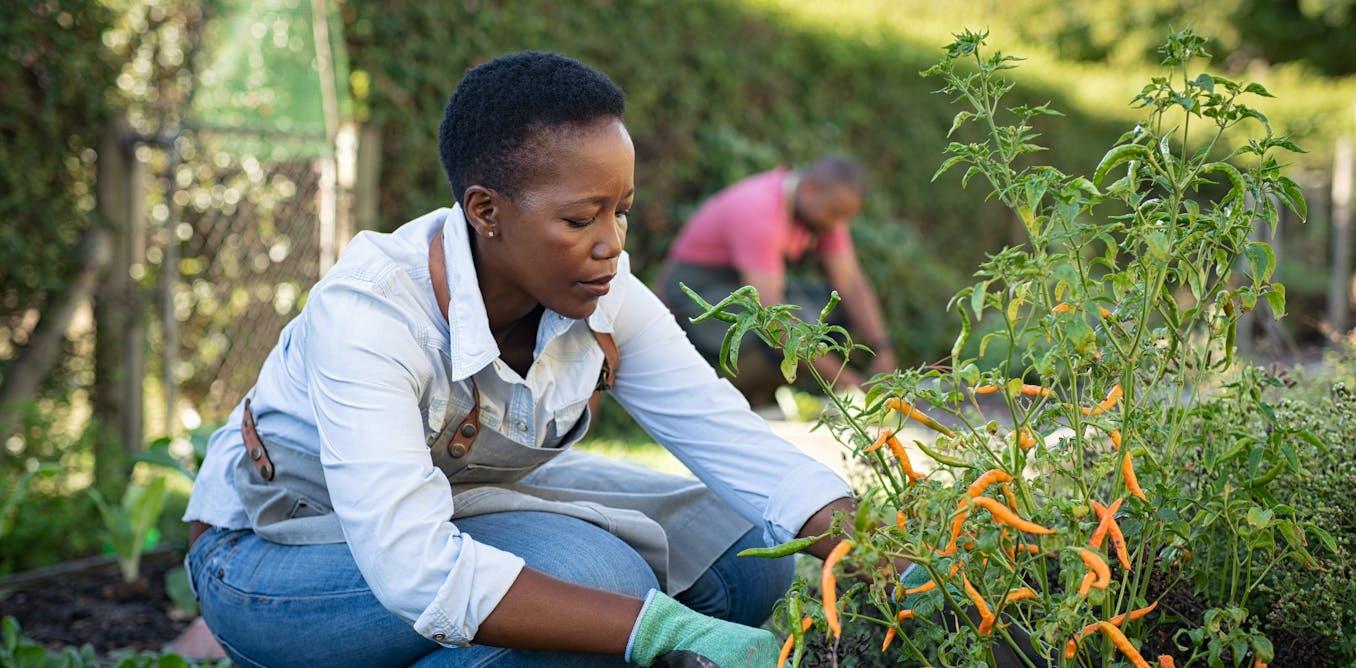
Digging Into The Colonial Roots Of Gardening
Many of you have probably already done some spring clean-up in your gardens or community spaces. Maybe you're thinking about what you'll be planting this year.
On this week's Don't Call Me Resilient podcast, we decided it was a perfect time to revisit one of our most popular episodes from last year about the complicated, colonial roots of gardening. In this episode, we explore how colonial history has affected what we plant and also, who gets to garden. And we look to a new way forward, discussing practical gardening tips with an eye to Indigenous knowledge.
We speak to two people with deep knowledge of the topic. Jacqueline L. Scott is a PhD candidate at the University of Toronto's Ontario Institute for Studies in Education. Her research focuses on the wilderness and making it a welcoming space for Black people. And community activist Carolynne Crawley is a woman with Mi'kmaw, Black and Irish ancestry. She is a member of the Indigenous Land Stewardship Circle in Tkaronto and she leads workshops and walks that integrate Indigenous teachings into practice.
Scott says:
Crawley asks:
Native wildflowers in front of a native wildflower planting garden sign. (Shutterstock) Resources
Is it time to decolonize your lawn? - Globe and Mail
The coloniality of planting: legacies of racism and slavery in the practice of botany - The Architectural Review
A Garden for the Rusty-Patched Bumblebee: Creating Habitat for Native Pollinators: Ontario and Great Lakes Edition (by Lorraine Johnson and Sheila Colla, 2022)
Finding Flowers (research project at York University)
From the archives - in The ConversationRead more: Decolonize your garden: This long weekend, dig into the complicated roots of gardening - Listen
Read more: How the colonial past of botanical gardens can be put to good use
Read more: A shortage of native seeds is slowing land restoration across the US, which is crucial for tackling climate change and extinctions
Listen and followYou can listen to or follow Don't Call Me Resilient on Apple Podcasts (transcripts available) , Spotify , YouTube or wherever you listen to your favourite podcasts.
We'd love to hear from you , including any ideas for future episodes.
Join the Conversation on Instagram , X , LinkedIn and use #DontCallMeResilient.

Legal Disclaimer:
MENAFN provides the
information “as is” without warranty of any kind. We do not accept
any responsibility or liability for the accuracy, content, images,
videos, licenses, completeness, legality, or reliability of the information
contained in this article. If you have any complaints or copyright
issues related to this article, kindly contact the provider above.


















Comments
No comment